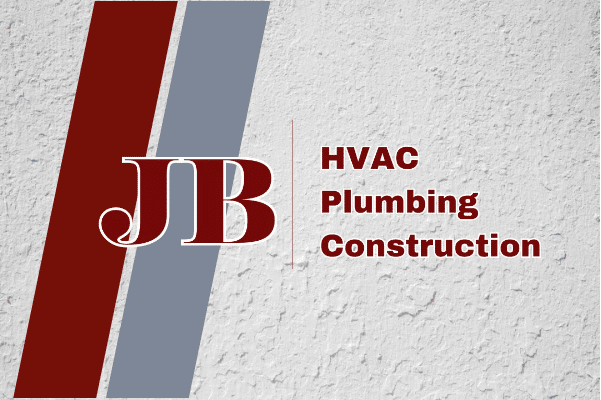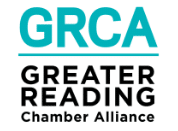
Getting Your Home's AC Ready For Warmer Weather
When warmer weather is around the corner, you can be sure it's time to give your AC a little attention. After months of cold, the outdoor unit especially needs maintenance. The last thing you want to deal with is a broken air conditioner on a hot July day. Our experts are here to walk you through easy DIY tips for summer HVAC prep. From filter changes to ideal thermostat settings, this guide has everything you need to know.
Change Air Filters
Regularly changing air filters is a simple but effective way to keep your system running especially. When you prepare your AC for the summer months, don't forget the benefits of filter changes.
- Improving Indoor Air Quality - Air filters trap dust, pollen, pet dander, and other airborne particles, preventing them from circulating in your home. Changing filters regularly maintains cleaner and healthier indoor air.
- Enhancing System Efficiency - Dirty or clogged air filters restrict airflow, forcing the air conditioner to work harder to maintain the desired temperature. Replacing filters ensures proper airflow.
- Preventing System Damage - Clogged filters can cause HVAC components to overheat. Over time, this can lead to system malfunctions, breakdowns, and costly repairs. Regular filter changes help prevent damage and extend the lifespan of the system.
- Maintaining Comfort - Dirty filters can cause uneven heating or cooling throughout the home. Replacing filters maintains consistent comfort levels in every room.
When to Change Air Filters
You should typically change your AC air filters every 1 to 3 months, depending on factors such as filter type, household occupancy, presence of pets, and indoor air quality concerns. Homes with pets or allergy sufferers may require more frequent filter changes.
When choosing air filters, consider the following factors:
- Filter Size - Ensure the filter size matches the dimensions specified by the HVAC system manufacturer.
- Filter Efficiency - Look for filters with a high Minimum Efficiency Reporting Value (MERV) rating.
- Filter Type - Choose between disposable fiberglass filters, pleated filters, electrostatic filters, or HEPA filters based on filtration needs, budget, and system compatibility.
- Allergen Reduction - Consider specialized filters designed to capture specific allergens, such as pollen, mold spores, or pet dander, if household members have allergies or respiratory sensitivities.
Clean & Clear the Outdoor Unit
Cleaning and clearing the outdoor AC unit, also known as the condenser unit or compressor unit, is crucial for maintaining optimal performance and efficiency of the air conditioning system. This is especially important in preparation for the summer months.
- Ensuring Efficient Heat Exchange - The outdoor AC unit contains the condenser coil, which releases heat absorbed from indoor air to the outdoor environment. Cleaning the condenser coil allows for proper heat exchange, ensuring the AC system can effectively cool indoor air.
- Preventing System Overheating - A dirty or obstructed condenser coil can lead to system overheating, as the AC compressor works harder to compensate for reduced heat transfer efficiency. Regular cleaning and maintenance of the outdoor unit helps prevent overheating and extend the lifespan of the AC system.
- Maintaining Airflow - Debris accumulation around the outdoor unit can obstruct airflow, reducing the system's overall efficiency and performance. By clearing debris from around the unit and cleaning the surrounding area, you can ensure proper airflow and optimal system operation.
Safely Cleaning the Outdoor AC Unit
- Turn Off Power - Before performing any maintenance or cleaning tasks, shut off power to the outdoor AC unit at the disconnect switch or circuit breaker.
- Remove Debris - Clear away leaves, grass clippings, dirt, and other debris from around the outdoor unit using a soft brush, broom, or handheld vacuum cleaner.
- Trim Vegetation - Trim back any overgrown vegetation, shrubs, or branches near the outdoor unit to ensure adequate airflow.
- Clean Condenser Coil - Use a garden hose with a gentle spray nozzle to carefully rinse the condenser coil from top to bottom.
- Check Drainage - Ensure that the condensate drain line is clear of obstructions and draining properly. Use a wet/dry vacuum to remove any clogs or debris.
- Inspect Components - While cleaning the outdoor unit, visually inspect the fan blades, coil fins, and housing for any signs of damage, corrosion, or wear.
Check & Adjust Thermostat Settings
As the weather warms up and you transition your HVAC from heating to cooling mode, be sure to check and adjust the thermostat accordingly. Here are some important things to know about thermostat settings for the summer:
- Switch to Cooling Mode - If your thermostat has separate settings for heating and cooling modes, switch it from heating to cooling mode as temperatures rise.
- Set Temperature Appropriately - The ideal temperature for cooling typically ranges between 72°F and 78°F. Aim for a temperature that balances comfort with energy efficiency.
- Avoid Drastic Temperature Swings - While it may be tempting to lower the thermostat to a very low temperature to cool the home quickly, this can lead to excessive energy consumption. Instead, set the thermostat to a moderate and consistent temperature.
- Use Fan Mode Wisely - Many thermostats offer the option to run the fan continuously or on an auto setting. In the summer, using the fan in auto mode allows it to operate only when the air conditioner is actively cooling. Running the fan continuously can increase energy usage and humidity levels.
- Regularly Check and Replace Batteries - If your thermostat is battery-operated, periodically check the battery status and replace batteries as needed to ensure proper operation.
Consider Upgrading to a Smart Thermostat
Upgrading to a smart thermostat offers numerous benefits, especially when preparing for the summer months. Here are some reasons why you might consider upgrading to a smart thermostat before summer:
- Convenience and Control - Smart thermostats provide greater convenience and control over HVAC systems. With smartphone apps and Wi-Fi connectivity, you can easily monitor and adjust temperature settings from anywhere, whether you're at home or away.
- Energy Efficiency - Smart thermostats are designed to optimize energy usage by automatically adjusting temperature settings based on occupancy patterns, preferences, and weather conditions.
- Programmable Scheduling - Smart thermostats offer programmable scheduling features that allow you to create customized temperature schedules tailored to your daily routines.
- Integration with Smart Home Ecosystems - Smart thermostats often integrate seamlessly with other smart home devices and ecosystems, allowing for enhanced automation and control. Integration with voice assistants like enables hands-free operation and temperature adjustment.
- Adaptive Learning and Optimization - By learning the homeowner's schedule, temperature preferences, and occupancy patterns, the smart thermostats can make intelligent adjustments to maximize comfort and energy efficiency without requiring manual input.
- Summer-Specific Features - During the summer, smart thermostats offer specific features to enhance cooling comfort and efficiency. These may include energy-saving modes, humidity control settings, and alerts for air filter replacements or system maintenance.
Schedule a Professional Maintenance Check
While DIY AC maintenance before the summer can help ensure basic functionality, scheduling a professional maintenance check offers several additional benefits, especially when preparing for the summer season:
- Comprehensive Inspection - Professional HVAC technicians conduct a thorough inspection of the entire system, including the indoor and outdoor units, ductwork, electrical components, and refrigerant levels. They can identify and address potential issues or deficiencies affecting the system's performance or efficiency.
- System Optimization - During a maintenance check, technicians clean and lubricate moving parts, tighten electrical connections, and calibrate controls to ensure optimal system operation.
- Preventive Maintenance - Regular AC maintenance helps prevent unexpected breakdowns and costly AC repairs by addressing potential problems before they escalate. By detecting and addressing issues early, technicians can minimize the risk of major malfunctions, especially during peak summer usage.
- Energy Efficiency - A well-maintained system operates more efficiently, leading to lower energy consumption and reduced utility bills. During a maintenance check, technicians clean or replace air filters, remove debris from the outdoor unit, and ensure proper airflow, to improve energy efficiency.
- Warranty Compliance - Many HVAC manufacturers require regular maintenance as a condition of their warranty coverage. Scheduling professional maintenance checks according to the manufacturer's recommendations ensures compliance with warranty requirements.
We're Here to Get Your AC Ready for Summer in Reading, PA
At JB | Plumbing HVAC & Construction, we always recommend staying on top of HVAC maintenance year-round. When it comes to preparing for warmer weather, we're here to help. Our local AC specialists understand the specific weather challenges that Reading homeowners face and will make sure your unit is ready for the heat. Don't wait until the dog days to schedule service! Contact us online or call 610-621-3452 today.


